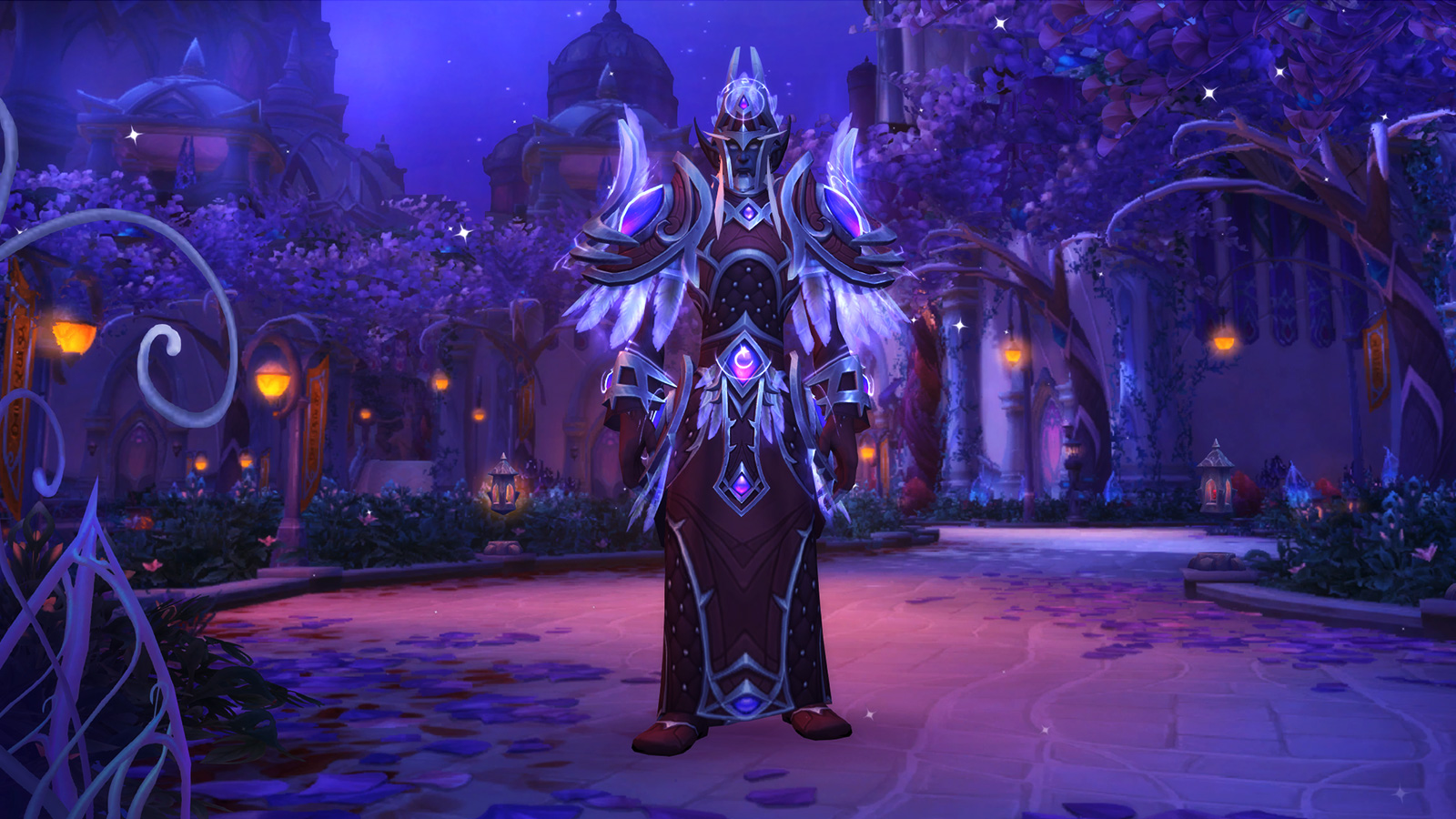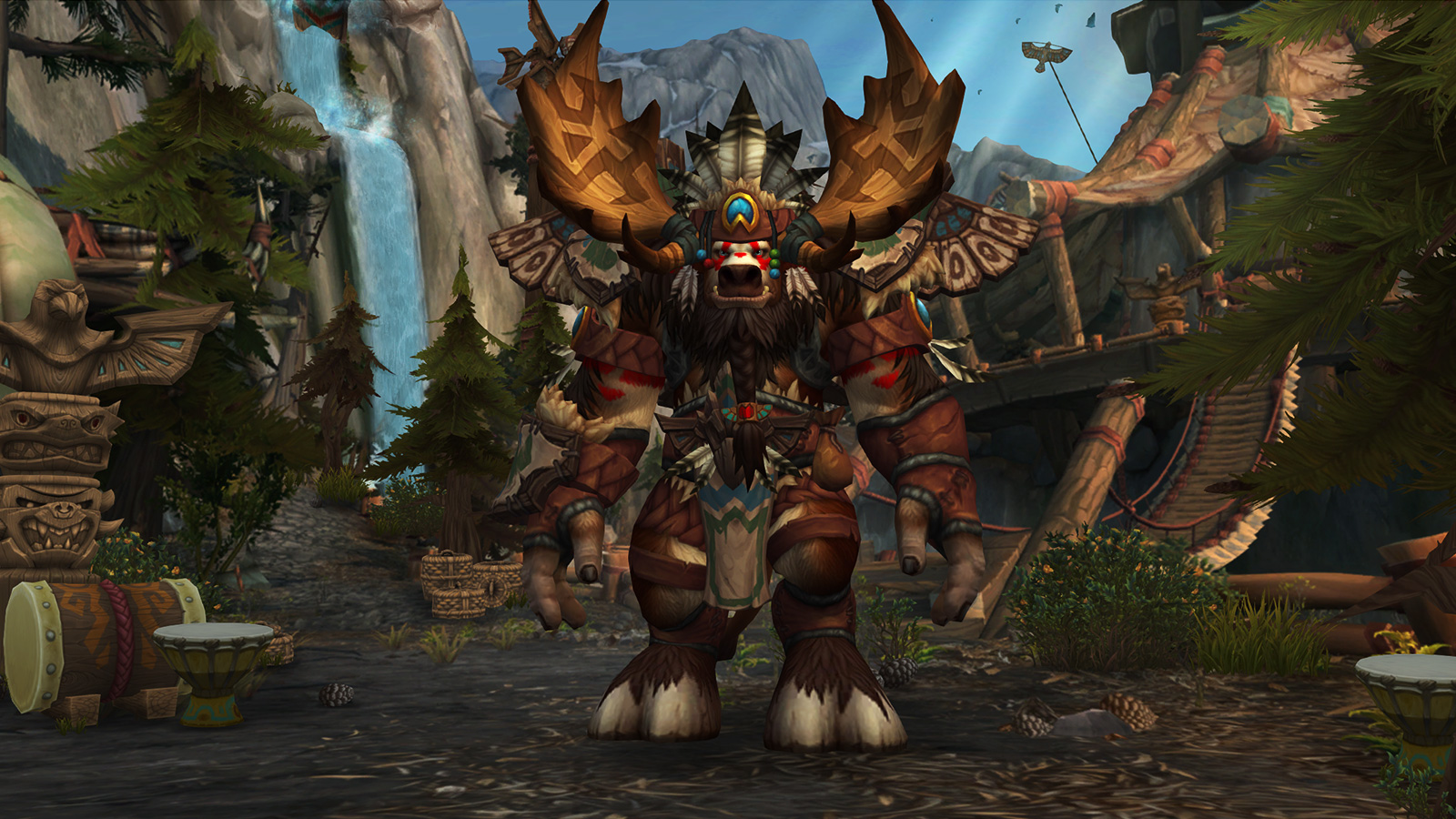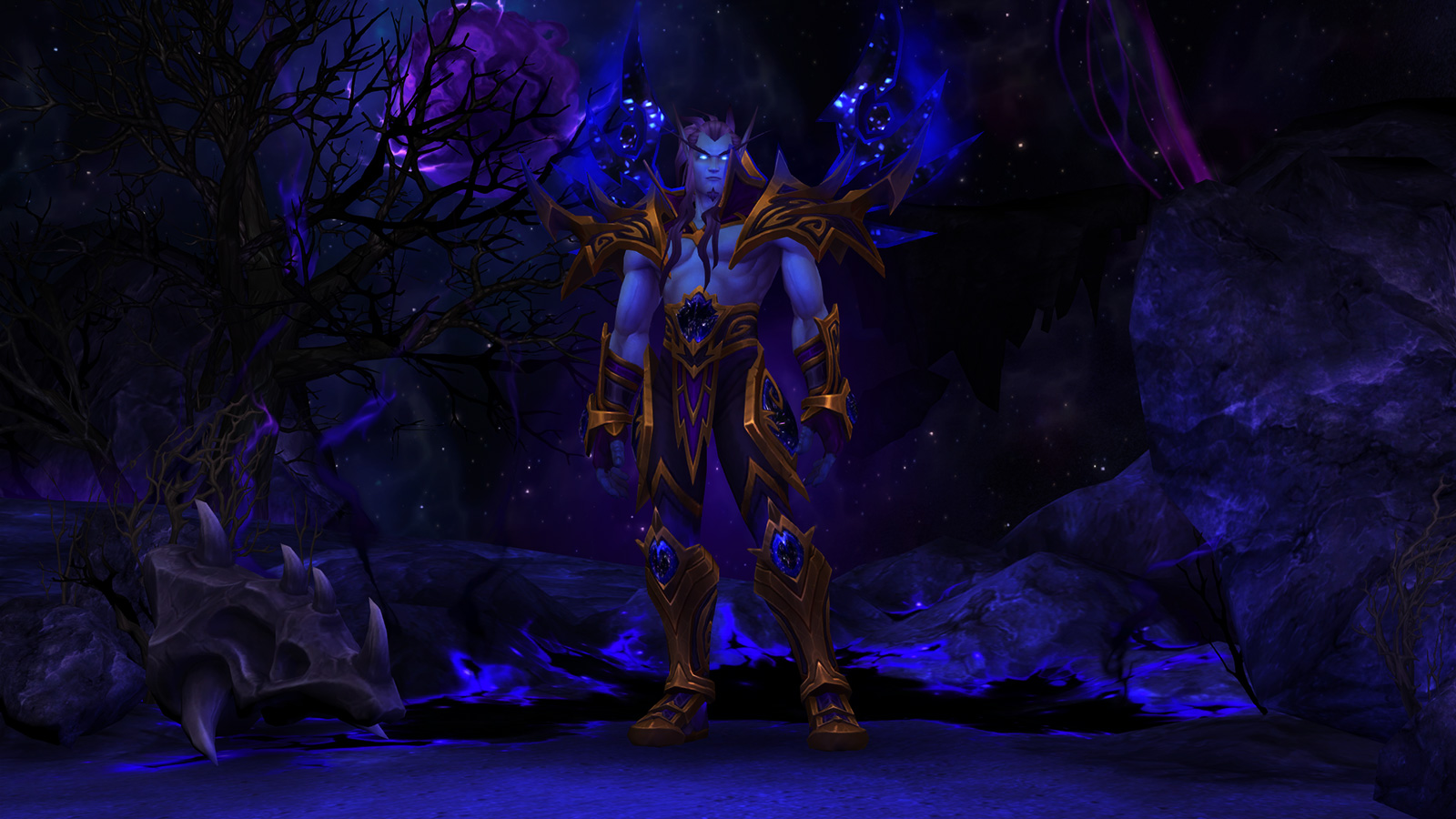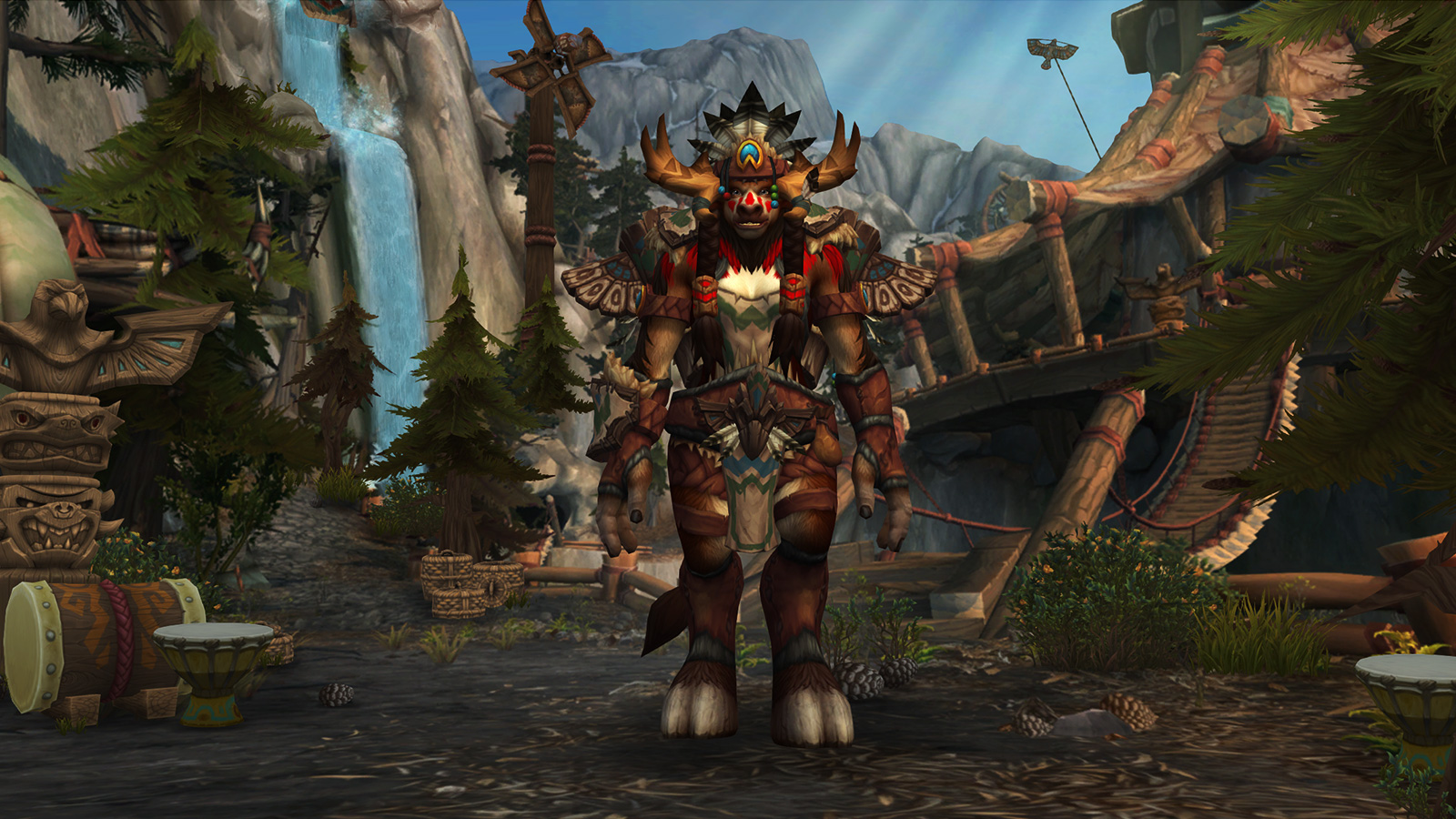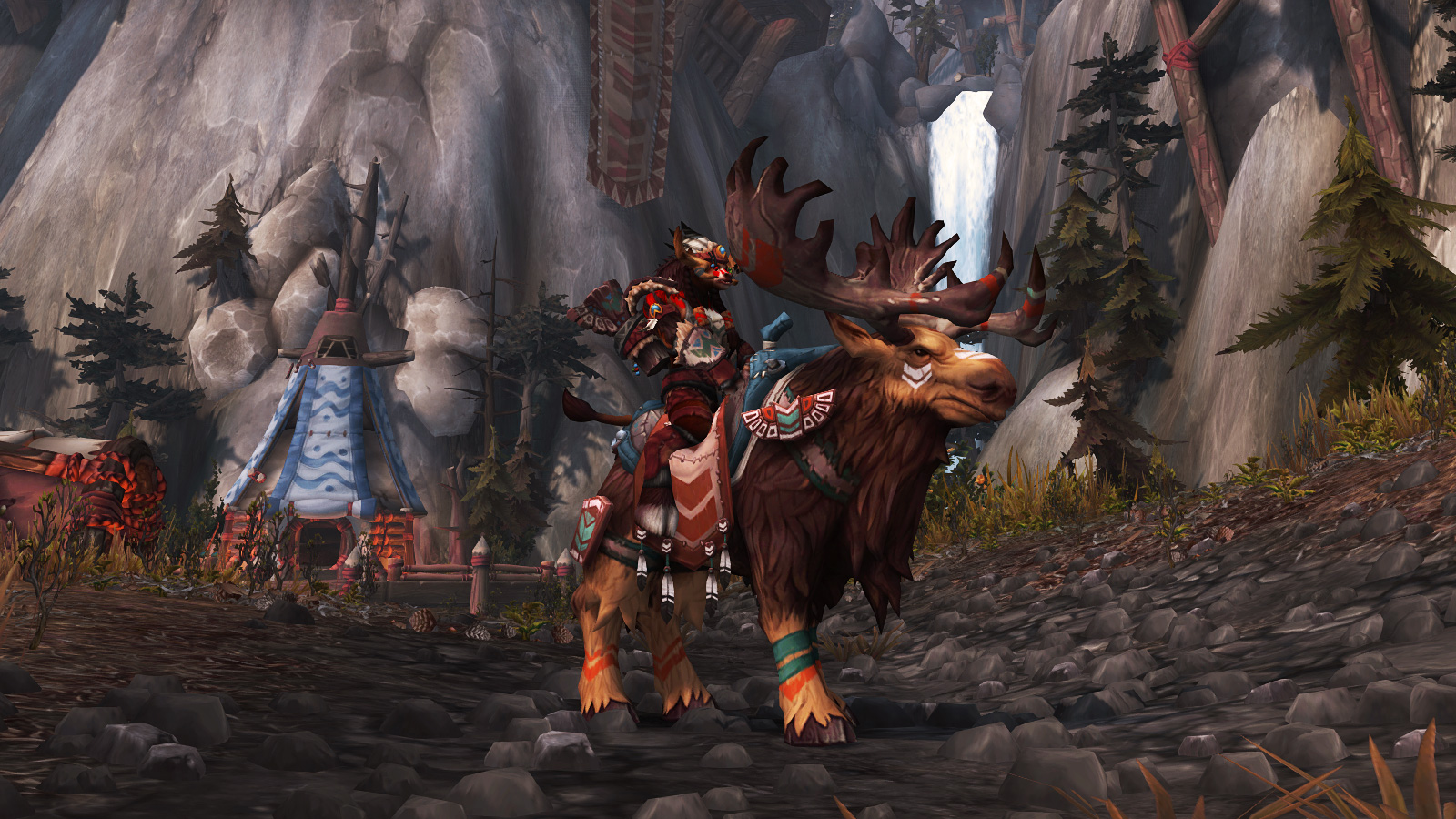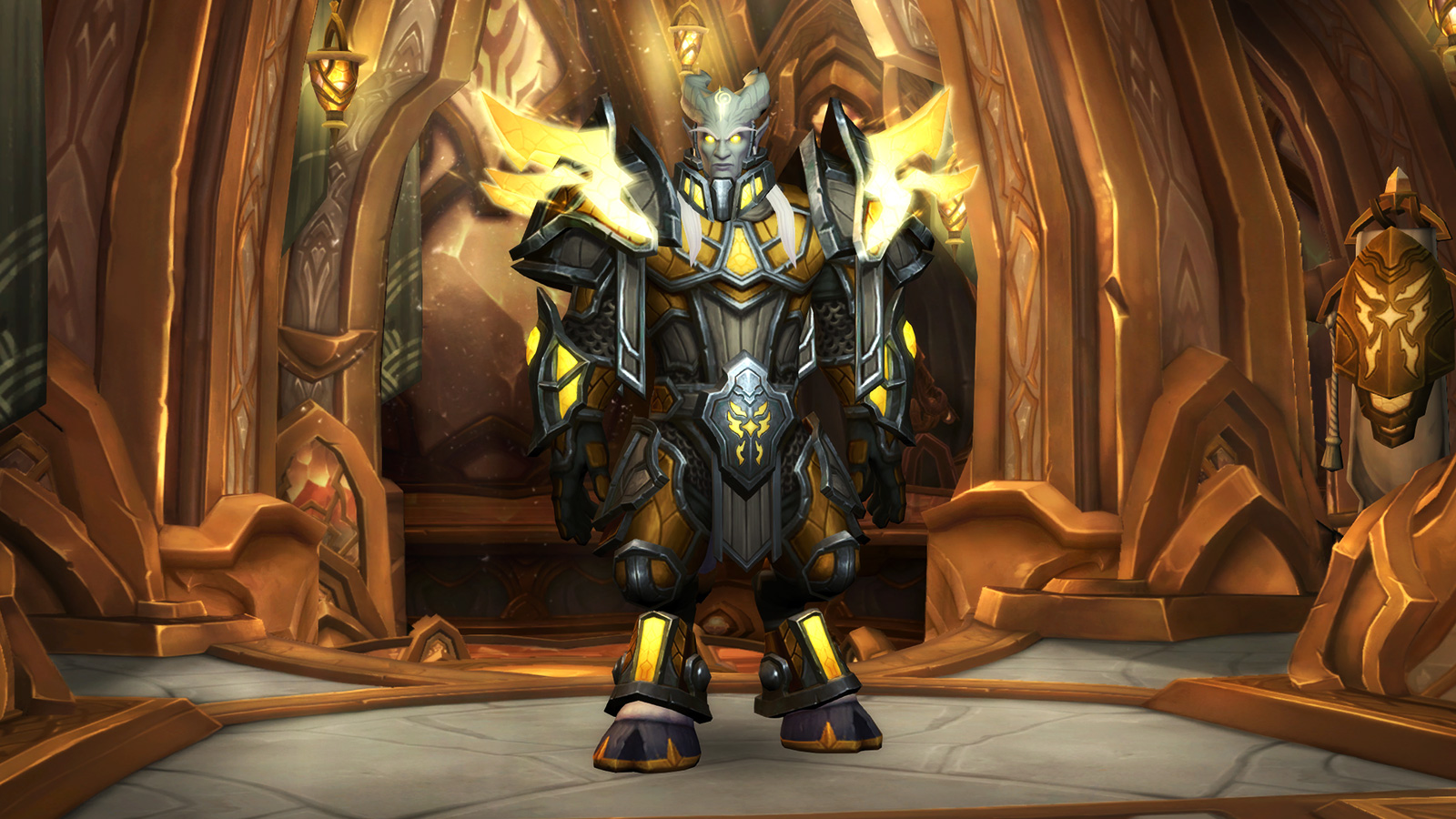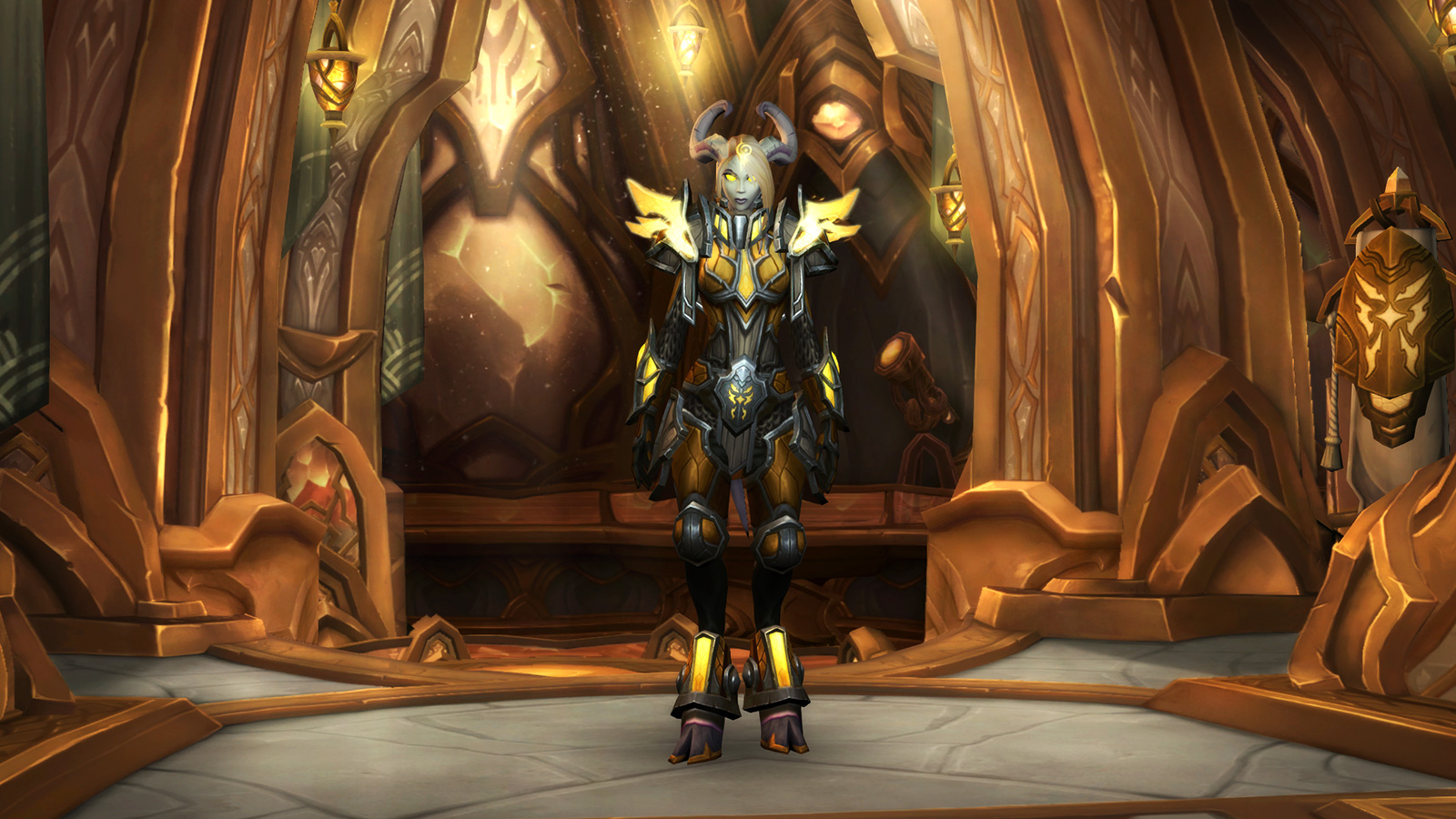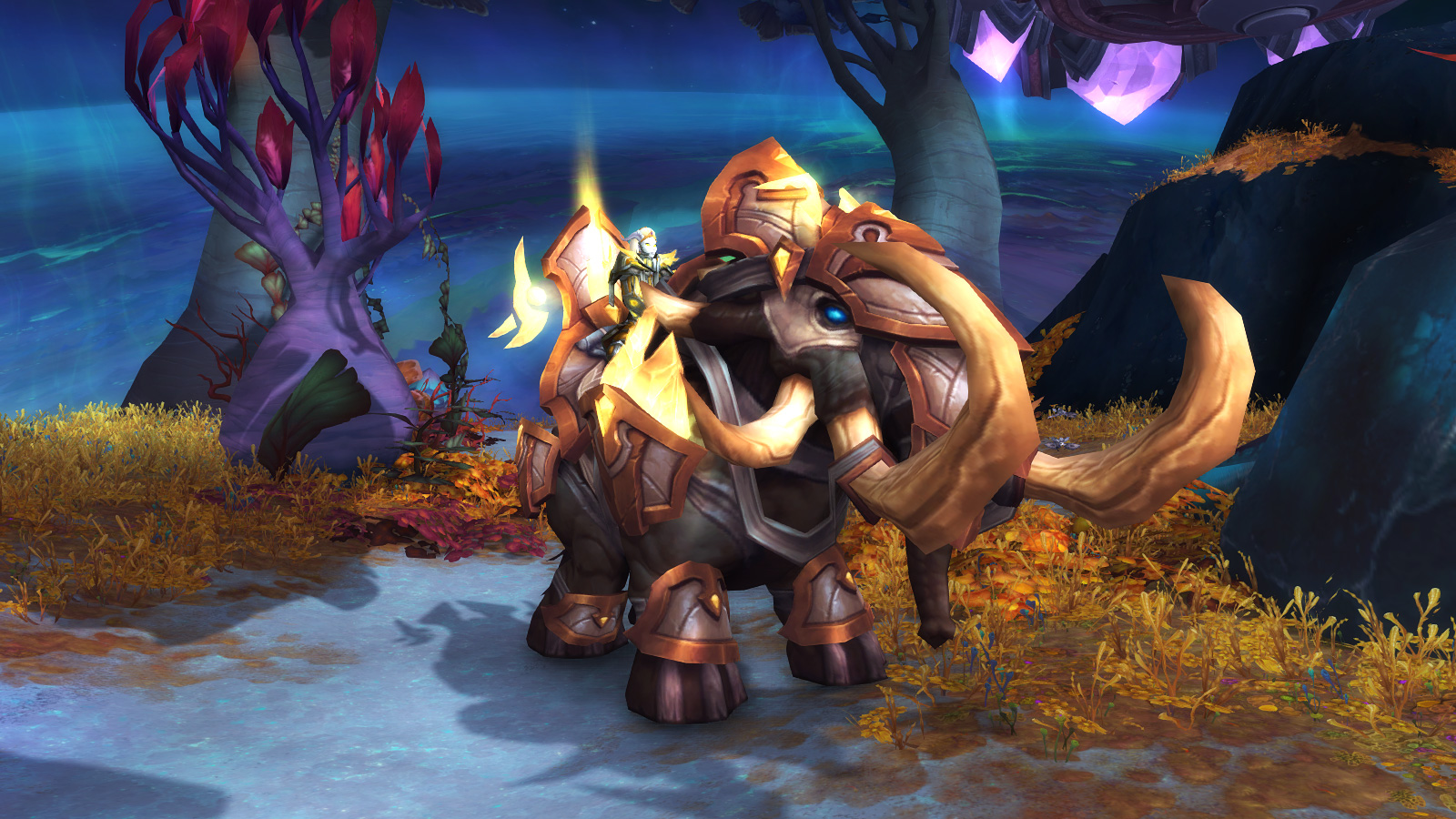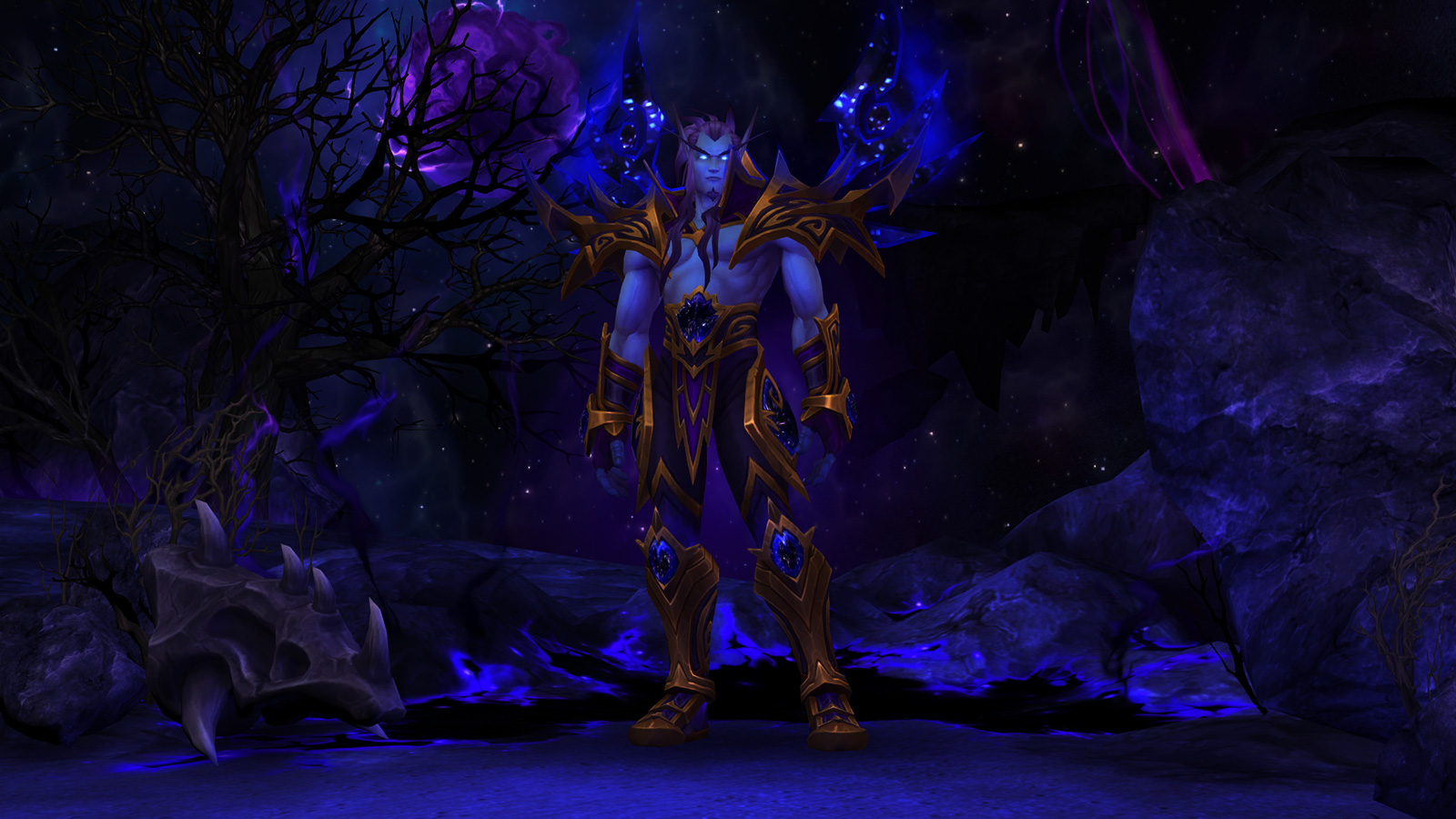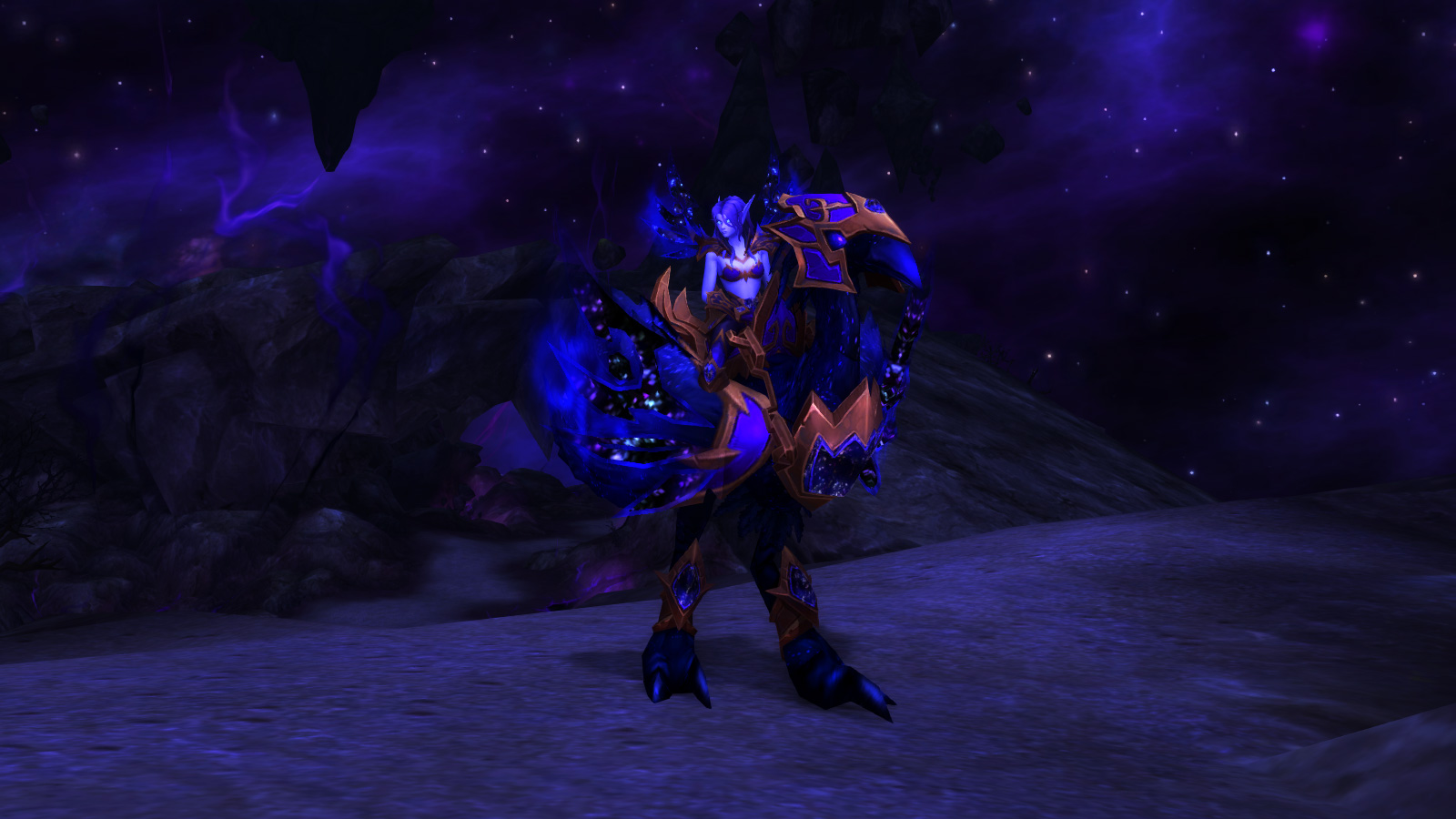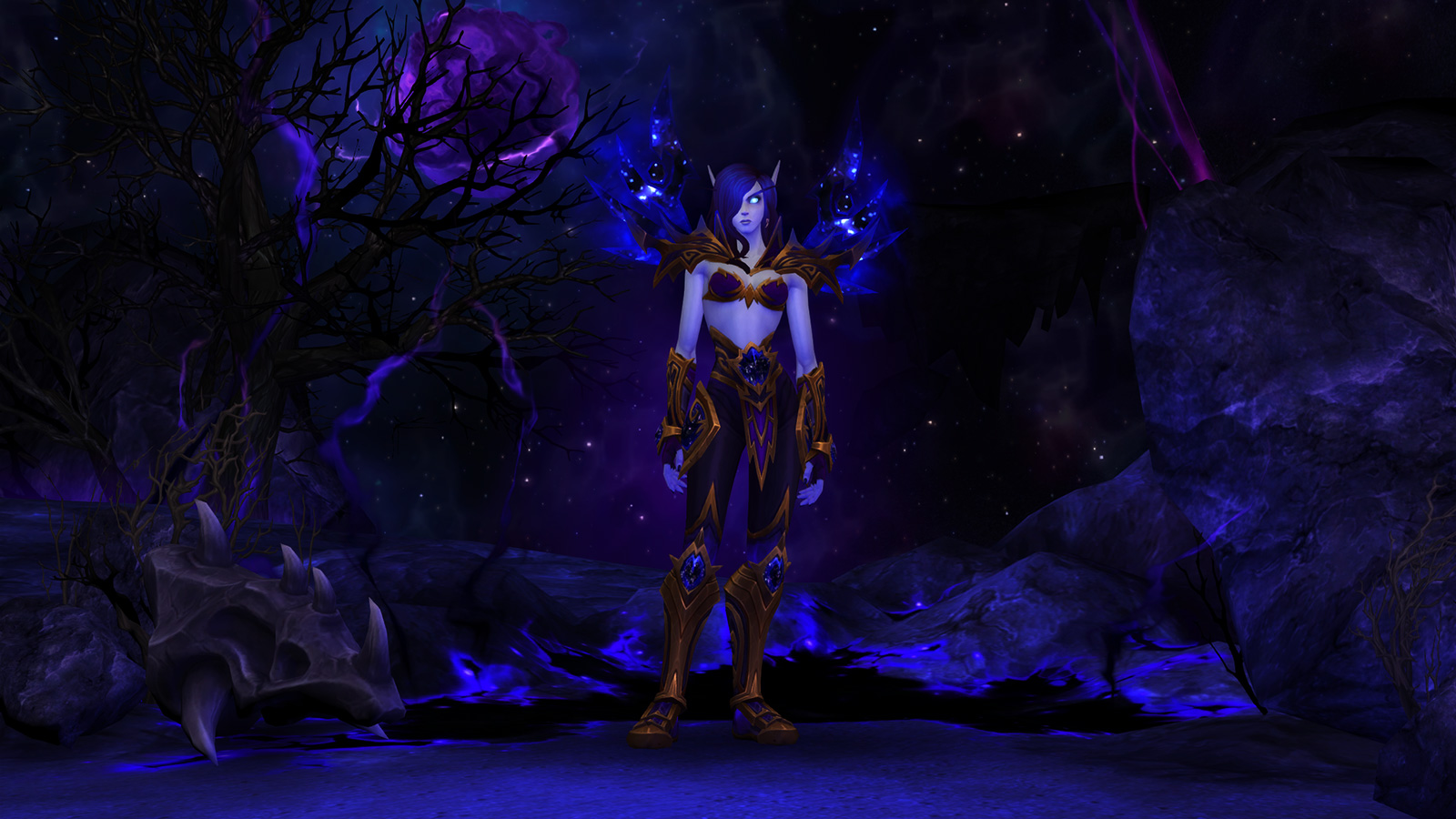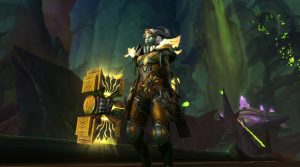Battle for Azeroth UpdatesSource: Blizzard World of Warcraft: Battle for Azeroth is now available for pre-purchase through the Blizzard Shop and in-game shop! When you pre-purchase a digital copy, you’ll receive a level 110 character boost to use immediately. You can also begin the journey to unlock the expansion’s new playable Allied Races: the Highmountain Tauren, Lightforged Draenei, Void Elves, and Nightborne. And if you level an Allied Race character from 20–110*, you’ll earn a distinctive Heritage Armor set—a lasting symbol of your dedication and commitment to Azeroth.
Watch the Live Q&A VoD with Ion Hazzikostas Here! This week we sat down with Game Director Ion Hazzikostas to answer your World of Warcraft: Battle for Azeroth questions. – Blizzard If you missed the live Q&A, don’t worry. We have you covered. Watch the VoD below to catch up on the latest. Source: Blizzard Experience Azeroth as one of Battle for Azeroth’s new six playable Allied Races. Earn the respect of the Nightborne, Lightforged draenei, and other noble allies, and you’ll unlock the ability to create new prestige characters of that race. Once an Allied Race is recruited, you can rediscover Azeroth through a revamped leveling experience featuring zones that scale as your character grows in power. Create a new character and complete the full leveling experience to earn a distinctive Heritage Armor set—a lasting symbol of your dedication Developer Watercooler: Battle for Azeroth Class Design Overview Source: Blizzard The development of World of Warcraft: Battle for Azeroth is well underway, and we want to share some insights into our philosophies and approach to class design for the expansion. While the launch of Legion brought lots of change to all of Warcraft’s classes, Battle for Azeroth will more closely resemble the example set by Legion’s patch content: targeted iteration based on player feedback and data. The intro cinematic of Battle for Azeroth revealed at BlizzCon 2017 has an underlying theme that resonates deeply with the class design team: “Remember what makes us strong.” With that in mind, our goals for the next expansion are to promote what makes each class unique, focus on making group gameplay the best that it can be, and continue our efforts to improve combat visuals and effects. While we believe some specializations will need substantial iteration to achieve these goals, others will not, and our target is greater stability across the board. Class Uniqueness and Utility That contrast causes members of a team to be more dependent on each other to succeed, and encourages different group compositions to approach encounters in different ways. Pursuing this goal will likely involve adding some new abilities (or re-adding previously removed abilities) to give classes a more unique signature where needed. It will also likely involve reining in the availability of certain utility types, especially those that are so widespread that they rarely provide meaningful contrast between classes. As a notable example, Area of Effect (AoE) stuns, some of most powerful utility that exists, are so abundant that most groups have at least one or two. As a result, decision-making around that tool is often less about when it would be best used, and more about avoiding overlap with other AoE stuns. Not only does this sometimes drown out the importance of other crowd control in dungeons, but it means that a class bringing an AoE stun to a group is not the major strategy-defining asset that it should be. Our goal is that whatever powerful kind of utility a class brings, it’s something that group will be happy to have added to their toolbox as they approach a challenge. The goal of contrast between the abilities of different specializations is not limited to utility. We’re also looking at different specializations’ strengths and weaknesses in their “main role”—damage dealing (or DPS), healing, or tanking—and making sure everyone has something to get excited about and an opportunity to shine. Some DPS specializations are “bursty,” doing fast damage; some live for attrition, wearing away their target. Some specializations prefer to isolate and drill into a single threat, while others revel in blowing up huge packs of monsters. Much of this plays out naturally due to the varying sets of damaging abilities, but we are working more intently than in the past to ensure an appropriate variety and spread of DPS strengths and weaknesses. Likewise, healers and tanks should have a bit more identity through their unique healing and mitigation profiles. Another part of this approach involves working with our content design teams to collaborate on a world where quests, dungeons, and raids create opportunities for all different types of class strengths to shine. If we’re arming classes with distinct tools that provide powerful answers to different situations, it’s important that the game’s content provides a broad array of challenges that play into those different tools. Talent System Refinements If a row has three similar area-damage talents, your decision can feel like it boils down to a complex math problem. If a row mixes area-damage and single-target talents, you’ll likely feel you should change talents to suit the content you’re doing, which also rarely feels like a choice. The most successful talent rows are those with options that have a generally consistent role in your toolkit, but have very different delivery and mechanics, allowing players to thoughtfully customize their identity and complexity. One other lesson we’ve already begun implementing in Legion patches is being careful with the effect that talents have on “pacing”—how frequently you get to press your buttons, and how often you generate resources and cooldowns. Of course, many talents affect the pacing of a rotation, and this will continue to be the case, as these are some of the talents with the most noticeable and fun feel to them. But if you have access to multiple talents that slow down or speed up your rotation, players can end up outside the bounds of what feels good to play (for example, by being resource starved or flooded). As we review talents going forward, we will try to avoid this by having strong resource-generating talents compete with each other, and better limiting the pacing change allowable from any single talent. Artifacts Here and Gone The largest issue is where the pacing of a spec’s rotation was heavily affected by Artifacts. In that case, removing the Artifact may result in a rotation that’s too slow, or has too much open time where the core buttons aren’t available. In the process of reviewing and updating each specialization for Battle for Azeroth, we want to make sure all of them are paced appropriately after the removal of Artifacts. In some cases, we may do things like increase resource generation or reduce cooldowns to fill in some of the newly opened space. For traits that go beyond simple numerical changes and have their own identity—such as active abilities or the powerful and noticeable procs—we are on the lookout across all specs for a small selection of traits that are worth turning into permanent parts of a class. The bar is high for a trait to become permanent. It’s an intended part of the experience of a system like Artifacts that the bonuses are layered on top of the core functionality of your class. You get to explore those bonuses thoroughly, but eventually move on from them. That leaves space in the permanent classes for new special bonuses from other systems in the future, as we’ll soon be exploring with Azerite Armor. That said, various specs will likely see one or two familiar traits from Artifacts showing up in their talent trees in Battle for Azeroth. These are the broad philosophies that are guiding our design in Battle for Azeroth, and we were deliberately light on sharing specific examples of change, which are still in a state of flux at this stage. We welcome a community discussion on the principles we’ve outlined, and look forward to delving into detailed and specific changes as we move forward with our alpha testing in the near future. Changes to Recruit-A-Friend – Now Live Source: Blizzard In Patch 7.3.5, we made significant changes to the level 1–100 experience to ensure players can better enjoy the stories, quest lines, and zones they want to at their own pace. Because of this, we are adjusting the XP bonus on the Recruit-A-Friend (RAF) program to ensure it reflects the updated pacing of the game as new players level their characters and explore Azeroth. DYNAMIC LEVELING IN PATCH 7.3.5As you may have heard, Patch 7.3.5 significantly overhauled the level-up experience in World of Warcraft so that zones from 1–100 will dynamically scale to your character’s level. Why? Over the years, we’ve made multiple changes to adjust the leveling curve—and as a result, the pace of characters’ progress has become significantly out of sync with the content. Players often out-level areas long before they’ve had a chance to complete key stories and quest lines, leading to a less-than-ideal experience. With this significant update to pacing, the existing Recruit-A-Friend program would no longer provide the best experience for players new to World of Warcraft. Even with scaling zones, triple-speed leveling would mean new players going into dungeons could find themselves overwhelmed by multiple new abilities gained over the course of a single instance run, and might still outpace storylines that help the world make sense and make players feel like they’re part of it—and we want new players to feel at home in Azeroth. To align the Recruit-A-Friend XP bonus with the upcoming leveling changes, we have reduced the XP boost gained from the Recruit-A-Friend program when playing with a linked friend down from 200% (300% XP vs. base XP) to 50%* (150% XP vs. base XP). We are making these changes to ensure the XP boost doesn’t upset game balance and undermine the experience, while still giving a significant XP bonus to you and a friend as a thank-you for being part of the Recruit-A-Friend program. RECRUIT-A-FRIEND CHANGES IN FULL
*For a full list of the rewards and the in-game criteria for receiving them, visit our RAF In-Game Bonuses page. Upgrade Your Account Security and Get a Backpack Upgrade Source: Blizzard What Is Blizzard SMS Protect?Blizzard SMS Protect lets you perform certain account actions from your mobile phone (such as removing your Authenticator), and can be set up to provide you with account activity notifications. All you need is a supported text-enabled cell phone to get started. What can SMS Protect do for you?
In addition, you can turn on alerts to have text messages sent directly to your phone notifying you of certain kinds of account activity, like password changes and security feature additions or removals. Remember, you can further safeguard your account by never sharing your password, using unique passwords on each site you visit, and staying aware of potential email and phishing scams. Learn more about what you can do to help safeguard your account by reviewing our security checklist. Where Can I Get the Blizzard Authenticator?Don’t have an Authenticator on your account? Download the free Blizzard Authenticator mobile app for iOS or Android, or purchase a physical Blizzard Authenticator from the Blizzard Gear Store. Visit the Blizzard Authenticator article for more information, or head to the setup page to get started after you’ve downloaded the app. As an additional bonus, when you add an Authenticator to your account, you’ll find the always feisty and fiery Core Hound Pup in-game pet waiting for you. |
